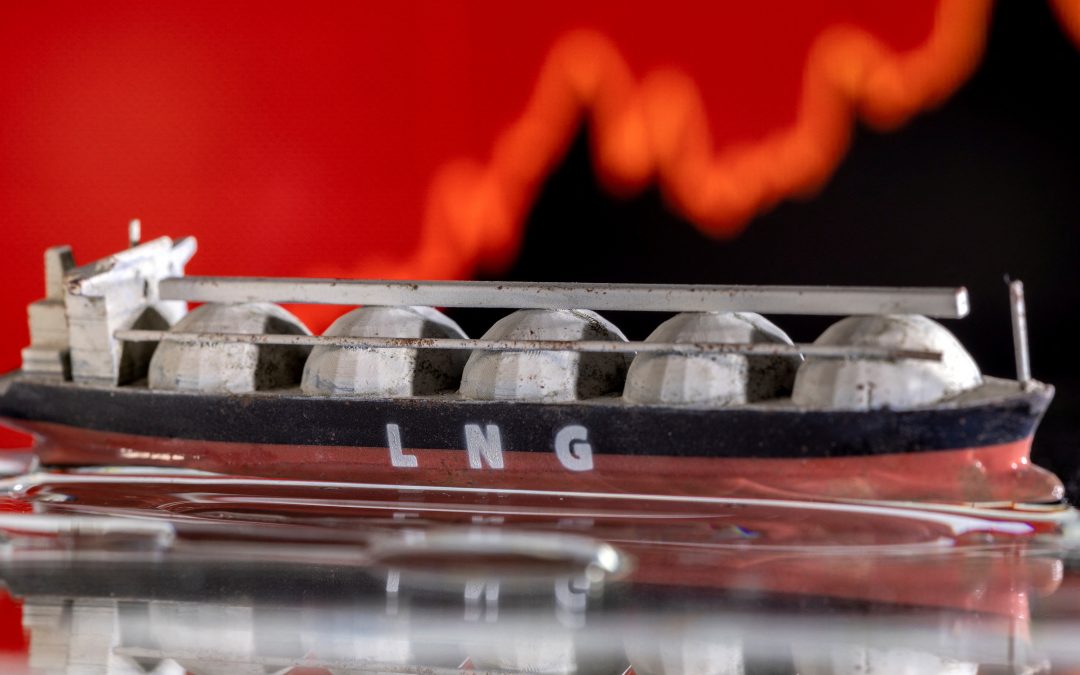IMM Private Equity Inc. and IMM Investment Corp. shortlisted five overseas companies in its bid to sell its entire 100 percent stake in South Korea’s largest liquefied natural gas shipping company, according to sources in the investment banking industry on Thursday.
Companies from the U.S., the U.K., Greece and Denmark were shortlisted from a preliminary bid for the sale of Hyundai LNG Shipping Co. held earlier this month. More than 20 strategic and financial investors around the world is said to have shown interest in the acquisition by signing non-disclosure agreements. The market expects the sale to be between 600 billion won ($467.29 million) and 700 billion won. Citigroup Global Markets Korea Securities Ltd. is the lead manager in the sale.
Hyundai LNG Shipping was formerly the gas carrier division of South Korea’s biggest shipping company HMM Co., formerly known as Hyundai Merchant Marine Co. IMM bought the LNG shipping unit from then cash-strapped HMM for about 500 billion won in 2014.
IMM initially sought to find a domestic buyer for Hyundai LNG Shipping as the company contributes to the transport of one of the country’s strategic cargo. IMM failed to find a suitable buyer.
In fact, IMM had contacted major domestic companies and made significant progress in negotiations with some of them. Negotiations with HMM broke down just before signing a contract last year for reasons that have not been disclosed. There is speculation in the investment banking industry that it may have been influenced by a decision by state-run Korea Development Bank and the Korea Ocean Business Corp. to sell HMM earlier this year.
Overseas shipping companies are eyeing the acquisition of Hyundai LNG Shipping for several reasons. First, Korea Gas Corp., the largest customer of Hyundai LNG Shipping, imports the world‘s largest volume of LNG as a single company, a customer sought by overseas shipping companies.
In addition, all vessels in Hyundai LNG Shipping’s fleet have long-term transport contracts of up to 20 years, so they are relatively less affected by changes in global macroeconomic conditions, such as interest rates, exchange rates and oil prices, and can generate stable profits. Furthermore, LNG is emerging as an eco-friendly alternative fuel to comply with the International Maritime Organization’s environmental regulations and Korea has a well-equipped ecosystem that covers financing to shipbuilding and human resources.
In addition, the prolonged war between Russia and Ukraine has increased demand for LNG as the conflict has disrupted pipeline gas supply.
Hyundai LNG Shipping has a fleet of 23 vessels, consisting of 16 LNG ships, six liquefied petroleum gas carriers and one LNG bunkering ship. When IMM acquired the company, there were only six LNG carriers and Korea Gas Corp. was its only customer. After the takeover, IMM strived to expand overseas sales by recruiting external experts and was able to expand its customer base to include Petroliam Nasional Bhd., Malaysia’s state-run energy company, and Repsol S.A, a Spanish multinational energy and petrochemical company. In Korea, it succeeded in expanding its business to include LPG by attracting E1 Corp., the largest LPG importer in Korea, as a customer.
Through these efforts, Hyundai LNG Shipping’s sales more than doubled to 398.1 billion won last year from 187.4 billion won in 2020, and its operating profit before cost depreciation also more than tripled to 48.5 billion won last year from 14.3 billion won during the same period.
Private equity fund Hahn & Co. is also looking to sell SK shipping Co.’s crude oil shipping business.
Source: Hellenic Shipping News





